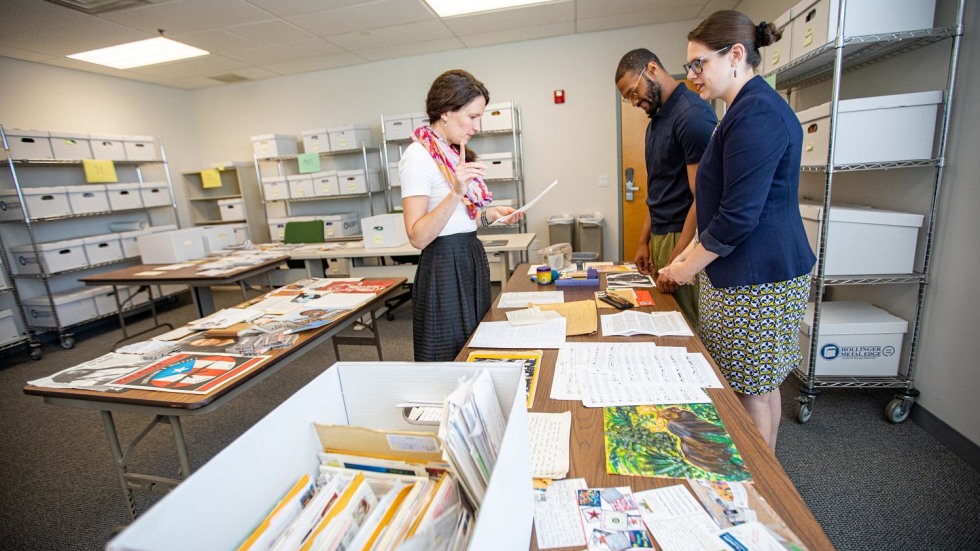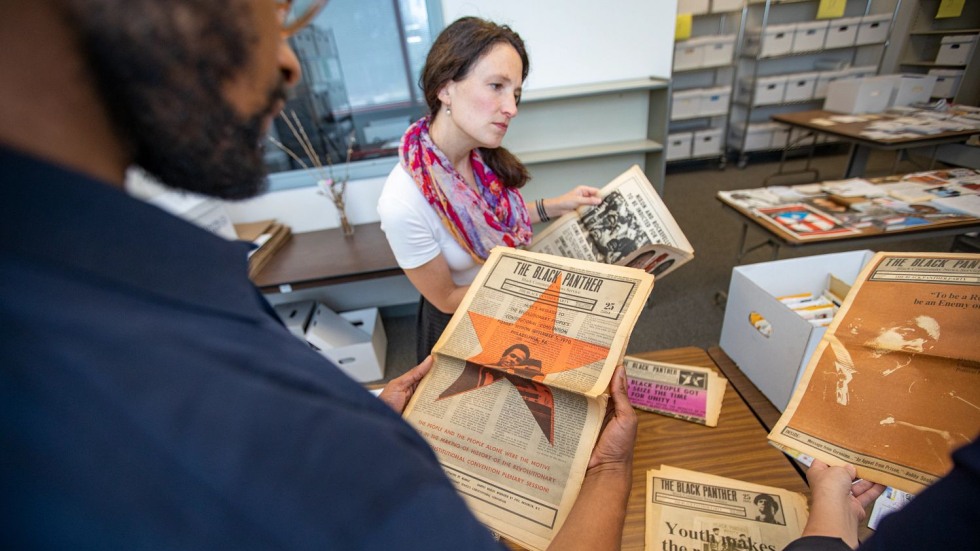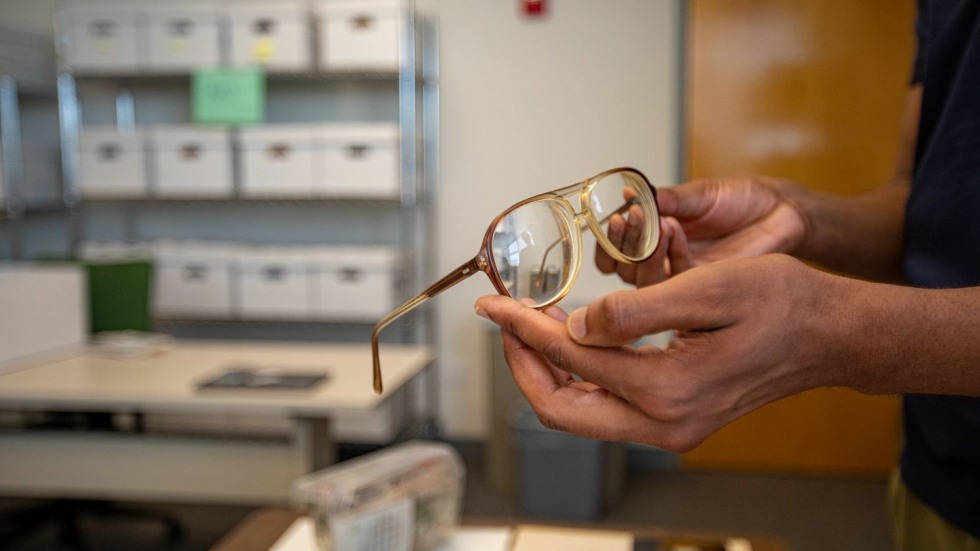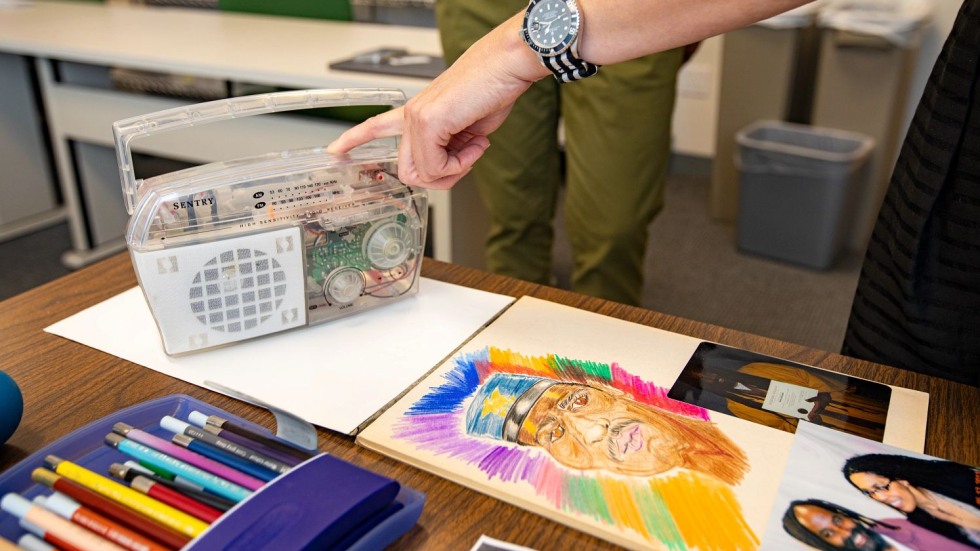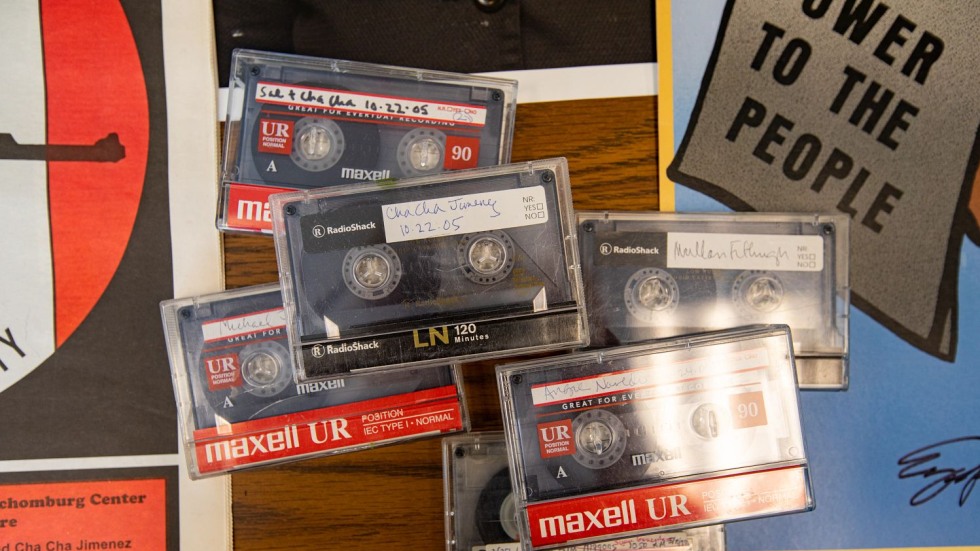Enriching scholarship and education
According to Strauss, the new collection builds on a number of rich resources for those who study 20th- and 21st-century mass incarceration. The University’s special collections are home to original copies of the Greenfield Review Press, a 1970s and 1980s magazine that famously printed poetry by people who were incarcerated. In addition, the Pembroke Center archives include numerous letters from incarcerated sex workers in Rhode Island and beyond, as well as an array of zines that feature commentary on prison systems in the U.S. The Hay Library is committed to expanding the size and scope of its scholarly resources related to incarceration in the years to come.
And the collection of personal stories from incarcerated people and their families continues to grow, thanks in part to a Mass Incarceration Lab directed by Associate Professor of Sociology Nicole Gonzalez Van Cleve. Founded in 2021 and housed within CSREA, the lab is a classroom-based project that gathers accounts from people who are incarcerated and their families, as well as from members of communities that have felt the impact of mass incarceration. The lab has already collected more than 200 letters and oral histories from people across the country.
“Students in my undergraduate and graduate classes are taking great care to preserve the stories and powerful testimonies of so many people who have lived through and found life after incarceration,” Van Cleve said. “That act of preservation is important: It adds dimension and nuance to the story of incarceration in America, and it exposes the flaws inherent in our criminal justice system.”
Prioritizing incarcerated voices is also a central tenet of a Center for the Study of Slavery and Justice research cluster titled Mass Incarceration and Punishment in America, which explores the links between anti-Black racism and crime and punishment in the U.S. through research by students, postdoctoral scholars and faculty.
“The CSSJ is committed to working with partners across the Brown campus and the globe to explore the ways in which settler colonialism and racial slavery were foundational to the formation of the world we live in today,” said CSSJ director Tony Bogues. “In order to understand why more than 2 million Americans sit in prisons and jails, and why more than one-third of that incarcerated population is Black, we need to reckon with the full extent of our past.”
Through all of this collecting and research, Strauss said, runs an ethos of responsible stewardship. Scholars take care to form meaningful relationships with the people whose stories they gather, in some cases giving them the option to remain anonymous or retain copies of their interviews and writings.
And because Abu-Jamal’s story is inextricable from Philadelphia’s modern history, the John Hay Library is actively seeking ways to make the materials regularly accessible to residents of that city. They plan to digitize the collection to ensure expanded access, fund research trips for Philadelphia students so they can engage in hands-on work with the materials, and partner with Philadelphia-area cultural heritage organizations to raise awareness of the collection’s rich resources, among other initiatives.
“This isn’t solely Brown’s collection — it’s a collection for everyone,” Strauss said. “These firsthand accounts provide essential information about the personal experiences of incarcerated Americans that can’t be found in large-scale data. As is reflected in the phrase ‘you belong here’ emblazoned on the Hay Library’s wall, we are committed to not only collecting diverse material that illuminates the most pressing issues of our time, but also providing open access to that material for all researchers.”
